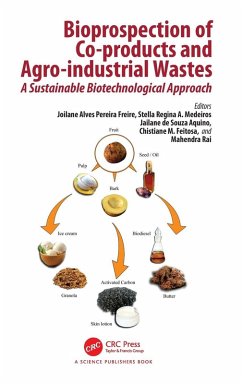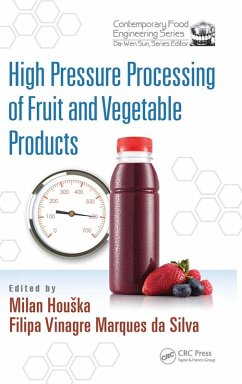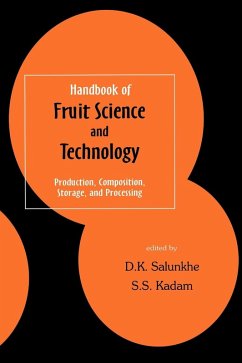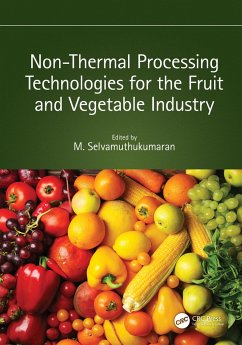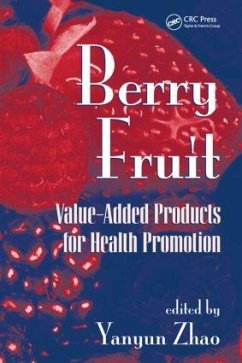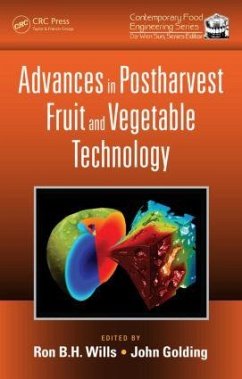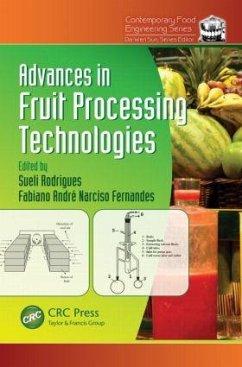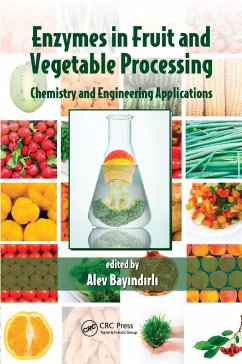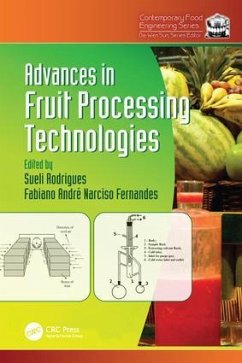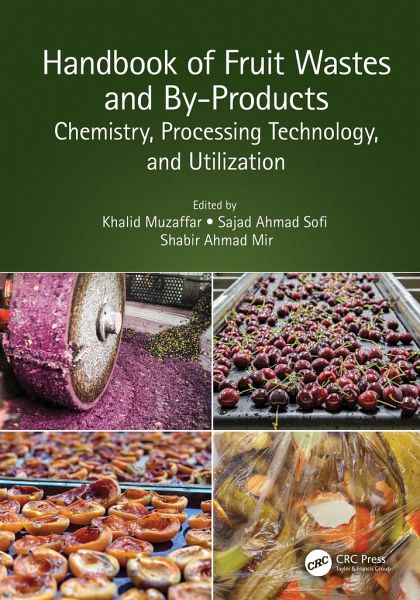
Handbook of Fruit Wastes and By-Products
Chemistry, Processing Technology, and Utilization
Herausgeber: Muzaffar, Khalid; Mir, Shabir Ahmad; Ahmad Sofi, Sajad
Versandkostenfrei!
Versandfertig in 1-2 Wochen
198,99 €
inkl. MwSt.

PAYBACK Punkte
99 °P sammeln!
Processing of fruits produces large volumes of wastes and by-products, which can create environmental problems. However, these fruit processing residues have amazing nutritional composition, containing good amounts nutrients and biofunctional components. So, the current trend in the present world it to efficiently utilize these fruit wastes and byproducts and minimizing their impact on the environment. Proper utilization of fruit processing wastes and by¿Products would not only emerge as a source of extra profit to the fruit processing industry but also will help in lessen the environment pol...
Processing of fruits produces large volumes of wastes and by-products, which can create environmental problems. However, these fruit processing residues have amazing nutritional composition, containing good amounts nutrients and biofunctional components. So, the current trend in the present world it to efficiently utilize these fruit wastes and byproducts and minimizing their impact on the environment. Proper utilization of fruit processing wastes and by¿Products would not only emerge as a source of extra profit to the fruit processing industry but also will help in lessen the environment pollution due to these fruit processing byproducts. 'Handbook of Fruit Wastes and By¿Products: Chemistry, Processing Technology and Utilization' will be the first book devoted to fruit processing wastes and by-products of wide range of important fruits including tropical, subtropical, and temperate fruits. Key features: · Provides comprehensive information about the chemistry of wastes and byproducts obtained during fruit processing · Provide in-depth information about the bioactive potential of fruit processing wastes and byproducts · Explores new strategies used for proper valorization of fruit processing residues · Describes the utilization of nutraceutical components derived from fruit processing residues in fabrication of novel functional foods Although, there are some general books on byproducts of food processing industry, but they are limited in context, related to only some particular fruits. The unique quality of this book is that it provides a full-length study of the different developments made right from the basic technologies involved in management of fruit wastes and byproducts to the recent advancements and future areas of research to be done on this subject. This book would be a valuable resource for scientists, researchers, professionals, and enterprises that aspire in management of fruit processing wastes and byproducts, and their utilization.



